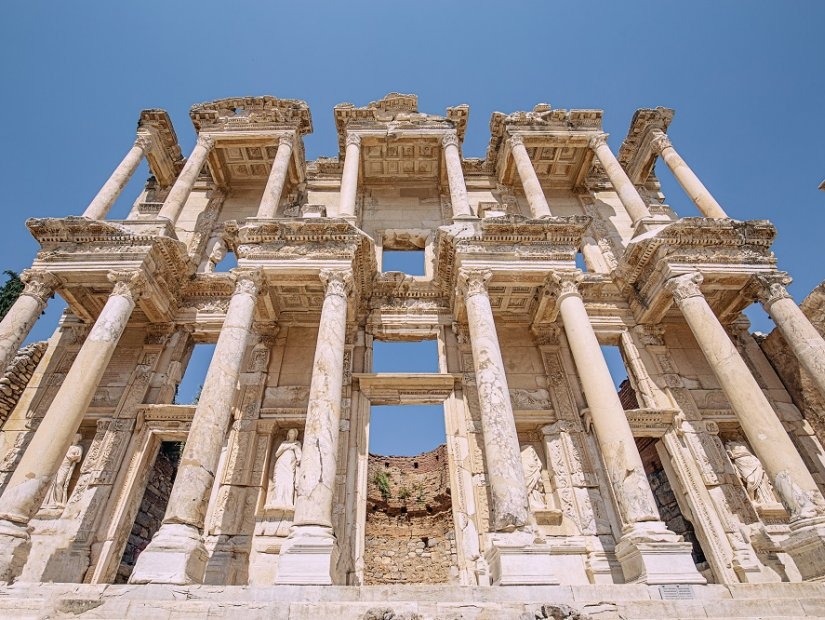Blog
Ancient Philosophers of Anatolia
Ancient Philosophers of Anatolia
Ancient Philosophers of Anatolia
The roots of philosophy as we know it has been laid in Miletus (modern-day Didim, Aydin) by Thales of Miletus and his students. Though most ancient philosophers are based in Western Anatolia, there was a presence in other parts of Anatolia as well. Anatolia served as a melting pot for both western and eastern philosophers of the time.
Thales
Thales of Miletus was born in modern-day Aydin, Turkey, and is regarded as the father of western philosophy. Today, Thales is widely accepted as the first philosopher in the Western tradition. Although some of his ideas, like the belief that everything is formed of water, seem out of place in the twenty-first century, Thales was a brilliant person who influenced the ancient world with his contributions to geometry, mathematics, astronomy, and of course, philosophy.
He was more than a theoretician. He was a man who applied his theoretical knowledge of the world to real-life situations. He became a symbol of innovation and is well known for measuring the height of the Great Pyramid of Giza by using its shadow. He also calculated the distance between ships at sea and is credited with five theorems, including the Thales Theorem.
Heraclitus
Heraclitus was a Greek philosopher who lived in the 6th century BCE at Ephesus, Asia Minor (modern-day Turkey). He is one of the most well-known Greek philosophers before Socrates. Heraclitus' statements, such as no one ever steps in the same river twice, are still famous among students of ancient philosophy as well as the general public.
Everything, according to Heraclitean philosophy, was in flux and continuously changing. Heraclitus also advocated the unity of opposites, the concept that opposing objects are the same, and talked of fire as the basic natural element. He was also the first Greek philosopher to utilize Logos to define the cosmic order in his philosophy.
Diogenes
Diogenes of Sinope, commonly known as Diogenes the Cynic, was a Greek Cynic philosopher who gets depicted as holding a lantern (or light) to the faces of the people of Athens while pretending to be looking for an honest man or living in a barrel. He considered manners to be a deception and promoted total honesty at all times and in all circumstances.
Probably one of the most famous exchanges in the history of philosophy belongs to Alexander the Great and Diogenes. Alexander asked Diogenes whether there was anything he could do for him. Stand back to cease blocking the light, Diogenes said, relishing the warmth of the sun. This sharp answer, demonstrating his total scorn for Alexander's desire for power and prestige, sparked a slew of creative renditions.
Epictetus
Epictetus was born as a slave in a wealthy household in Hierapolis (modern-day Pamukkale, Turkey) almost 2,000 years ago. Epictetus learned philosophy through the Stoic Musonius Rufus, who became his teacher and mentor, when his master, Epaphroditus, permitted him to pursue liberal studies.
Epictetus' main concerns were integrity, self-management, and personal freedom, which he promotes by requiring his pupils to examine two fundamental notions. The capacity he calls "volition" and the proper use of impressions, in a heartfelt and humorous manner. Epictetus is more than a moralizer; his clear systematization and challenging application of Stoic ethics establish him as a notable philosopher in his own right.
Honorable Mention: Aristotle
Even though he was not born in Anatolia, he spent a good portion of his life in Assos (modern-day Çanakkale). Aristotle was born in the ancient Greek kingdom of Macedonia in 384 BC, where his father was the royal physician. With humble labels like the master and simply the philosopher, he grew up to be probably the most important philosopher of all time. One of his major responsibilities was educating Alexander the Great, who went on to conquer the known world shortly after.
Aristotle was enthralled with the inner workings of things. Philosophy, according to Aristotle, was about practical wisdom. He searched the answers for various important questions like, what makes people happy, what art is for, what friends are for.


